







Thank you for joining us as we close Pacific Chorale’s 2024-25 season with one of the most profound and beloved works in the choral canon: Mozart’s Requiem.
This evening’s program brings together voices across time—Brahms, Jake Runestad, Sarah Quartel, and Mozart—each making timeless statements about life, legacy, and what connects us. We’re honored to share this music with you, alongside our wonderful colleagues at Pacific Symphony, as we also celebrate Carl St.Clair’s remarkable 35th and final season as their Music Director.
Carl’s deep love of choral music, his unwavering support of our singers, and his belief in the transformative power of the human voice have left an indelible mark on Pacific Chorale and our community. His generosity of spirit, mentorship, and musical vision have elevated not only our performances, but our lives.
As we look back on this season—from the dramatic storytelling of Israel in Egypt to the compassionate urgency of To the Hands, and the soul-stirring resonance of tonight’s program—we’re reminded just how powerful this art form can be. Your presence in our audience makes it all possible.
We extend heartfelt thanks to our Platinum Season Sponsor, Phillip N. and Mary A.Lyons, and to all the generous donors and concert sponsors whose support sustains Pacific Chorale’s artistic and educational programs.
Though tonight marks a farewell to this season, it’s also the start of what’s next. We can’t wait to welcome you back in the fall for another year of meaningful music-making, discovery, and connection.
Yours in music,
ROBERT ISTAD
PHILLIP N. AND MARY A. LYONS ARTISTIC DIRECTOR CHAIR
RHETT M. DEL CAMPO PRESIDENT & CEO
2024-25 SEASON
SATURDAY, MAY 24, 2025
8:00 P.M.
Platinum Season Sponsor
Phillip N. and Mary A. Lyons

RENÉE AND HENRY SEGERSTROM CONCERT HALL
Pacific Chorale
Robert Istad, artistic director & conductor with Pacific Symphony
Carl St.Clair, music director
Chelsea Chaves, soprano
I-Chin Betty Feinblatt, mezzo-soprano
Nicholas Preston, tenor
Sean Gabel, bass
Nänie, Op. 82 (1881)
Johannes Brahms (1833–1897)
Density of Light (2022)
Sarah Quartel (b. 1982)
Into the Light (2017)
Jake Runestad (b. 1986)
I. The Universe of Light
II. The Lightless Dark
III. The Warm Fogs of Fear
IV. Flower Into Kindness
V. Into the Light
Requiem, K. 626 (1791)
Wolfgang Amadeus Mozart (1756–1791)
I. Introitus: Requiem aeternam
II. Kyrie
III. Sequence
1. Dies irae
2. Tuba mirum
3. Rex tremendae
4. Recordare
5. Confutatis
6. Lacrymosa
IV. Offertorium
1. Domine Jesu
2. Hostias
V. Sanctus
VI. Benedictus
VII. Agnus Dei
VIII. Communio: Lux aeterna
Ms. Chaves • Ms. Feinblatt • Mr. Preston • Mr. Gabel
BRAHMS: Nänie (Elegy)
Text by Friedrich Schiller (1759-1805)
Auch das Schöne muß sterben! Das Menschen und Götter bezwinget, Nicht die eherne Brust rührt es des stygischen Zeus.
Einmal nur erweichte die Liebe den Schattenbeherrscher, Und an der Schwelle noch, streng, rief er zurück sein Geschenk.
Nicht stillt Aphrodite dem schönen Knaben die Wunde, Die in den zierlichen Leib grausam der Eber geritzt.
Nicht errettet den göttlichen Held die unsterbliche Mutter, Wann er, am skäischen Tor fallend, sein Schicksal erfüllt.
Aber sie steigt aus dem Meer mit allen Töchtern des Nereus, Und die Klage hebt an um den verherrlichten Sohn.
Siehe, da weinen die Götter, es weinen die Göttinnen alle, Daß das Schöne vergeht, daß das Vollkommene stirbt.
Auch ein Klaglied zu sein im Mund der Geliebten, ist herrlich, Denn das Gemeine geht klanglos zum Orkus hinab.
Even the beautiful must die. That which subdues mortals and gods does not touch the unyielding heart of the Stygian Zeus.
Only once did love soften the ruler of the shades, and yet, at the threshold, sternly he recalled his gift.1
Aphrodite does not soothe the wounds of the beautiful boy2 whose delicate body the boar cruelly tore.
The immortal mother does not rescue the divine hero,3 when, falling at the Scaean gate, he fulfills his destiny.
But she rises out of the sea with all the daughters of Nereus, and lifts up a lament for her glorious son.
Behold! the gods weep; all the goddesses weep, because the beautiful perishes, the perfect dies.
Even to be a dirge on the lips of a loved one is glorious, for the common ones go down to Orcus unsung.
1 Eurydice, wife of Orpheus, whom he attempted to bring back from Hades
2 Adonis, the lover of Aphrodite who was killed by a wild boar while hunting
3 The hero Achilles and his mother, the Nereid (sea goddess) Thetis
Text by Thomas H. Troeger (1945-2022) from Borrowed Light: Hymn Texts, Prayers and Poems (1994)
Density of light that could shatter the cold rock of the moon, compacted flame that only the face of holy love could withstand, may Christ reflect your blaze to the distant satellite of my heart and melt the fear that from the orbit of my days you would scatter my dim shards to darkness.
I. THE UNIVERSE OF LIGHT
Come out into the universe of light. Everything in the universe is yours, stretch out your arms and embrace it with love.
(Swami Vivekananda)
You are a product of your thoughts. What you think, you become.
(Gandhi)
II. THE LIGHTLESS DARK
The only lightless dark is the night of ignorance. We differ from one another, not in our senses, but in the use we make of them.
(Helen Keller)
III. THE WARM FOGS OF FEAR
The ice under us is very thin, and is made weak by the warm fogs of fear.
(Frederick Douglass)
We are driven by love or by fear. I fear you, for I do not know you.
(After Martin Luther King Jr.)
There is no fear in love, but perfect love drives out fear.
(John the Evangelist)
Density of light, compacted flame, sudden lightning, draw me onward through thick darkness trusting that light shall spring from the grave and the coldest rock in space shall join in a blaze of song: glory, glory, glory, glory be to you O God.
IV. FLOWER INTO KINDNESS
The soul is made of love and must ever return to love. There is nothing so wise, nor so beautiful, nor so strong as love.
(Mechthild von Magdeburg)
Above all, love.
(Peter the Apostle)
I shed my words on the earth as the tree sheds its leaves. Let my thoughts unspoken flower into kindness.
(Rabindranath Tagore, adapt. Runestad)
V. INTO THE LIGHT
We are not yet what we shall be, but we are growing toward it.
(Mar tin Luther)
Come out into the universe of light. Everything in the universe is yours, stretch out your arms and embrace it with love.
(Swami Vivekananda)
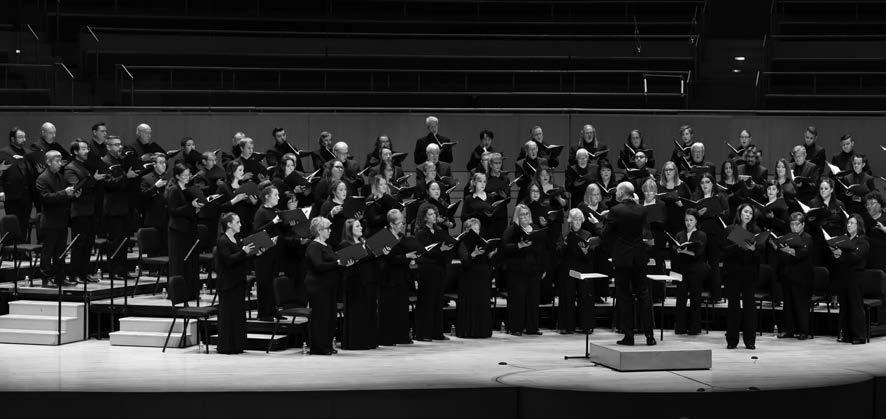
MOZART: Requiem
Requiem æternam dona eis, Domine, et lux perpetua luceat eis.
Te decet hymnus Deus in Sion, et tibi redetur votum in Jerusalem: exaudi orationem meam, ad te omnis caro veniet.
Kyrie eleison. Christe eleison. Kyrie eleison.
Dies iræ! dies illa Solvet sæclum in favilla: Teste David cum Sibylla! Quantus tremor est futurus, Quando iudex est venturus, Cuncta stricte discussurus!
Tuba, mirum spargens sonum Per sepulchra regionum, Coget omnes ante thronum.
Mors stupebit, et natura, Cum resurget creatura, Iudicanti responsura.
Liber scriptus proferetur, In quo totum continetur, Unde mundus iudicetur.
Iudex ergo cum sedebit, Quidquid latet, apparebit: Nil inultum remanebit.
Quid sum miser tunc dicturus? Quem patronum rogaturus, Cum vix iustus sit securus?
REX TREMENDAE
Rex tremendæ maiestatis, Qui salvandos salvas gratis, Salva me, fons pietatis.
Rest eternal grant to them, O Lord, and let perpetual light shine upon them. A hymn befits you, O God in Zion, and to you a vow shall be fulfilled in Jerusalem: Hear my prayer, for unto you all flesh shall come.
Lord, have mercy. Christ, have mercy. Lord, have mercy.
Day of wrath, that day Shall dissolve the world into embers As David prophesied with the Sibyl! How great the trembling will be, When the Judge shall come, The rigorous investigator of all things!
The trumpet, spreading its wondrous sound Through the tombs of every land, Will summon all before the throne.
Death will be stunned, likewise nature, When all creation shall rise again, To answer the One judging.
A written book will be brought forth, In which all shall be contained, And from which the world shall be judged.
When therefore the Judge is seated, Whatever lies hidden shall be revealed: No wrong shall remain unpunished.
What then am I, a poor wretch, going to say? Which protector shall I ask for, When even the just are scarcely secure?
King of terrifying majesty, Who freely saves the saved, Save me, fount of pity.
Recordare, Iesu pie, Quod sum causa tuæ viæ: Ne me perdas illa die.
Quærens me, sedisti lassus: Redemisti Crucem passus: Tantus labor non sit cassus.
Iuste iudex ultionis, Donum fac remissionis Ante diem rationis.
Ingemisco, tamquam reus: Culpa rubet vultus meus: Supplicanti parce, Deus.
Qui Mariam absolvisti, Et latronem exaudisti, Mihi quoque spem dedisti.
Preces meæ non sunt dignæ: Sed tu bonus fac benigne, Ne perenni cremer igne.
Inter oves locum præsta, Et ab hædis me sequestra, Statuens in parte dextra.
Confutatis maledictis, Flammis acribus addictis: Voca me cum benedictis.
Oro supplex et acclinis, Cor contritum quasi cinis: Gere curam mei finis.
Lacrimosa dies illa, Qua resurget ex favilla Judicandus homo reus. Huic ergo parce, Deus:
Pie Jesu Domine, Dona eis requiem. Amen.
Remember, merciful Jesus, That I am the cause of your sojourn: Do not cast me out in that day.
Seeking me, you sat down weary: Having suffered the Cross, you redeemed me: May such great labor not be in vain.
Just Judge of vengeance, Grant the gift of remission Before the day of reckoning.
I groan, like one who is guilty: My face blushes with guilt: Spare your supplicant, O God.
You who absolved Mary [Magdalene], And heeded the thief, Have also given hope to me.
My prayers are not worthy: But you, good one, kindly grant That I not burn in the everlasting fires.
Grant me a favored place among your sheep, And separate me from the goats, Placing me at your right hand.
When the cursed are confounded, Consigned to the fierce flames: Call me to be with the blessed.
I pray, suppliant and kneeling, My heart contrite as if it were ashes: Protect me in my final hour.
O how tearful that day, on which the guilty shall rise from the embers to be judged. Spare them then, O God.
Merciful Lord Jesus, grant them rest. Amen.
Requiem (CONTINUED)
Domine Jesu Christe, Rex gloriæ, libera animas omnium fidelium defunctorum de poenis inferni et de profundo lacu:
libera eas de ore leonis, ne absorbeat eas tartarus, ne cadant in obscurum: sed signifer sanctus Michael repræsentet eas in lucem sanctam: Quam olim Abrahæ promisisti, et semini ejus.
Hostias et preces tibi, Domini, laudis offerimus: tu suscipe pro animabus illis, quarum hodie memoriam facimus:
fac eas, Domine, de morte transire ad vitam, quam olim Abrahæ promisisti, et semini ejus.
Sanctus, Sanctus, Sanctus, Dominus Deus Sabaoth. Pleni sunt cæli et terra glori tua. Osanna in excelsis.
Benedictus qui venit in nomine Domini. Osanna in excelsis.
Agnus Dei, qui tollis peccata mundi, dona eis requiem.
Agnus Dei, qui tollis peccata mundi, dona eis requiem.
Agnus Dei, qui tollis peccata mundi, dona eis requiem sempiternam.
Lux æterna luceat eis, Domine: cum sanctis tuis in æternum: quia pius es.
Requiem æternam dona eis, Domine, et lux perpetua luceat eis.
Lord Jesus Christ, King of glory, liberate the souls of all the faithful departed from the pains of hell and from the deep pit.
Deliver them from the lion’s mouth, let not hell swallow them up, let them not fall into darkness: but let Michael, the holy standard-bearer, bring them into the holy light, which once you promised to Abraham and to his seed.
Sacrifices and prayers of praise, O Lord, we offer to you. Receive them, Lord, on behalf of those souls we commemorate this day.
Grant them, O Lord, to pass from death unto life, which once you promised to Abraham and to his seed.
Holy, Holy, Holy, Lord God of Hosts. Heaven and earth are full of your glory. Hosanna in the highest.
Blessed is he who comes in the name of the Lord. Hosanna in the highest.
Lamb of God, who takes away the sins of the world, grant them rest.
Lamb of God, who takes away the sins of the world, grant them rest.
Lamb of God, who takes away the sins of the world, grant them rest everlasting.
May light eternal shine upon them, O Lord, in the compay of your saints for ever and ever; for you are merciful.
Rest eternal grant to them, O Lord, and let perpetual light shine upon them.
By JOHN KOEGEL Professor of Musicology, California State University, Fullerton
Although JOHANNES BRAHMS’s consolatory Ein deutsches Requiem (German Requiem), Opus 45 (1865-1868), is his choral masterpiece, his beautiful work Nänie, Opus 82 (1880-1881), for chorus and orchestra, stands with that work and his Alto Rhapsody, Opus 53 (1869) as one of his most important choral compositions. With his work as a conductor of amateur choral societies in the later 1850s, in Detmold and Hamburg, Germany, and through the compositions he wrote for these amateur ensembles, Brahms gained facility in writing for choral forces. He composed many smaller-scale sacred and secular works for mixed-gender, men’s, and women’s choruses, which in essence served him as practice for his later large-scale choral works. His conducting of these German choral ensembles introduced him to earlier music from the Renaissance and Baroque periods, especially to the music of Johann Sebastian Bach. Taken as a whole, his substantial body of choral works is important in his total compositional output, alongside his four symphonies, concertos, solo piano music, instrumental chamber music, and German art songs.
Brahms’s serene Nänie was given its premiere in Zurich in 1881 by the Tonhalle Gesellschaft Chorus, conducted by the composer. It is an elegiac lament composed in memory of Brahms’s friend, the painter Anselm Feuerbach (18291880). It is a setting of German poet Friedrich Schiller’s (17591805) Nänia (Nänie) one of the great works of German poetry, which evokes ancient Greek myths and literary forms. The first line of the poem “Auch das Schöne muß sterben!” (Even the Beautiful must die!) captures the essence of Schiller’s idea of the short-lived nature of beauty and the inevitability of death. The name Nänie is the German version of the Latin Naenia (Nenia), and it is both a name and a literary form: the name of the Roman goddess of funerary rites, and the poetic form of the lamentation. However, Schiller’s poem is a lament for the death of the “beautiful” rather than for an individual.
Schiller suggests three episodes from Greek mythology in his poem: Orpheus’s lament on the loss of his wife Eurydice, Aphrodite’s lament on the death of her lover Adonis, and Thetis’s lament on the failure to prevent her son Achilles’s death. The classical Greek references in
Schiller’s work are perhaps one reason why Brahms set this poem, since Feuerbach frequently referenced episodes from ancient Greek mythology and literature in his paintings. Like Brahms’s longest work, Ein deutsches Requiem, his shorter Nänie is also a consolation for the living.
RUNESTAD is an awardwinning composer and conductor who believes in the power of music to effect positive change. His compositions have been described as “highly imaginative” (Baltimore Sun) and “stirring and uplifting” (Miami Herald), and he has been praised for having “a particular knack for marrying powerful music to texts that speak to some of the most pressing and moving issues of our time” (Minneapolis Star Tribune). Runestad has composed for a variety of vocal, choral, and instrumental forces, including works for chorus, wind band, orchestra, chamber ensembles, and opera. He has received numerous honors and awards, including an EMMY® Award (2022), GRAMMY® Award nominations (2020 and 2025), recognition from the American Choral Directors Association (Raymond W. Brock Commission), McKnight
Fellowship (2017), and ASCAP’s Morton Gould Young Composer Award (2016), among others. In 2019, Craig Hella Johnson and Conspirare released an album of Runestad’s choral music entitled The Hope of Loving, and True Concord Voices and Orchestra released the album A Dream So Bright: Choral Music of Jake Runestad. His large-scale choral symphony Earth Symphony is being performed internationally.
His choral-orchestral piece Into the Light from 2017 was commissioned by Valparaiso University in commemoration of the 500th anniversary of the Protestant Reformation. Runestad explains: “Rather than create a museum piece for the Reformation, I asked myself what reforming means in our world today: What are the major issues plaguing our world and what is their cause? Who has addressed these issues through their work and their words (in the vein of Martin Luther)? How can I address these issues through a musical work for chorus and orchestra in a meaningful way?” In order to achieve this goal, the composer set a variety of disparate short texts from various world traditions, by influential reformers such as Martin Luther, Helen Keller, Mahatma Gandhi, Frederick Douglass, Martin Luther King, Jr., and others, “urging the listener to move beyond fear towards love.”
MOZART’s often-performed Requiem in D minor, K 626, has been surrounded by mythology about its commission, composition, and premiere, as well as his supposed rivalry with the court composer Antonio Salieri. Myths about the Requiem circulated after Mozart’s death and were explored in later fictional works such as Alexander Pushkin’s Russian play Mozart and Salieri (1830), which was made into a Russian opera of the same name by Nikolai Rimsky-Korsakov (1898); Peter Schaffer’s play Amadeus (1979); and Miloš Forman’s film version of the play (1984). Despite these romanticized reimaginings of Mozart’s last year and his Requiem, we do know important details of the work’s creation and performance history.
Composed in 1791 in the last year of Mozart’s life, it is his last composition, and followed his operas Die Zauberflöte (The Magic Flute) and La Clemenza di Tito (The Clemency of Titus), and his Clarinet Concerto. It was commissioned anonymously by Count Franz von Walsegg in the summer of 1791 in honor of the count’s late wife. Left incomplete at Mozart’s death, it was completed by Franz Xavier Süssmayr (1766-1803). Although more than two dozen musicians have attempted to complete Mozart’s Requiem, the version that is most frequently presented is Süssmayr’s, first
performed in 1792, the year after Mozart’s death—and the version performed tonight by the Pacific Chorale and Pacific Symphony.
Mozart died on December 5, 1791 and his funeral was held the next day in St. Stephen’s Cathedral in Vienna. It was paid for by Baron Gottfried van Swieten, Mozart’s patron and a serious music lover, who was also a patron of Haydn and Beethoven. According to musicologist Christoph Wolff, Mozart’s wife Constanze’s sister Sophie “reported later about Mozart’s death: ‘The last thing he did was to try and mouth the sound of the timpani in his Requiem; I can still hear it now.’” Five days after Mozart’s death, a Requiem Mass was sung in his memory on December 10 at St. Michael’s Church in Vienna, during which the first movement, the Introit, of his own Requiem was sung, probably along with the second movement, the Kyrie double fugue. These movements were likely followed by the remainder of the Requiem Mass sung in plainchant. This performance was arranged by Emanuel Schickaneder, Mozart’s Magic Flute librettist and the first Papageno in that opera. Wolff believes that Mozart’s friends “clearly understood that when the dying composer put aside this score, he knew that he had been writing a Requiem for himself.”
A complete performance of the Requiem in memory of Walsegg’s wife was given on December 14, 1793, in the monastery church at Wiener Neustadt, and was falsely billed as Walsegg’s own work—a practice the Count followed with other compositions that he had commissioned. Because of its nature as a Mass for the Dead, the structure of the Requiem is different from that of the daily Mass. Instead of having the usual five-part format of the Mass Ordinary, with the Kyrie, Gloria, Credo, Sanctus, and Agnus Dei, the Requiem Mass has eight sections: Introit, Kyrie, Sequence (Dies Irae), Offertory, Sanctus, Benedictus, Agnus Dei, and Communion (Lux aeterna). Mozart intended to follow this structure with his Requiem, and he drafted about two-thirds of the work before his death. The rest of the Requiem, including the orchestration, was completed by Süssmayr based on what Mozart had finished and his sketches. The resulting Requiem is a compact work, of less than an hour’s duration, and is suitable for liturgical and concert use. It calls for an orchestra of strings, 2 basset horns (lower-pitched clarinets), 2 bassoons, 3 trumpets, 3 trombones, tympani, and continuo. Although Mozart did not use the trombone in his symphonies or concertos, it was commonly used in church music at the time and he also used it in several of his operas.
In his Requiem setting, Mozart blended diverse musical elements of his late-classic style with aspects of Baroque-era sacred music composition. He was particularly inspired in this approach by his careful study of the high contrapuntal art of Handel’s and Bach’s music. He was able to study their large-scale choral-orchestral scores through the generosity of his patron Baron van Swieten, who gave him access to his own excellent musical library, including works by these two Baroque-period composers. Mozart’s early biographer Georg Nikolaus Nissen (17611826), who married Mozart’s widow Constanze in 1809, noted this blending of musical elements in his published life of the composer issued posthumously in 1829. Nissen emphasized that the Requiem “combines the power, the sacred dignity of early music with the rich ornamentation of the newer music.”
Due to scheduling reasons, the commissioned work by Viet Cuong originally programmed for this evening is being replaced with Sarah Quartel’s Density of Light
We extend our continued respect to Viet Cuong, whose bold and evocative voice remains a vital part of today’s musical landscape.
Density of Light for chorus and organ sets a text by Thomas Troeger from his collection Borrowed Light. The text is adapted from an Epiphany reading exploring the triumph of light over darkness. Quartel (b. 1982) utilizes a popular music-influenced compositional palette, along with flowing lyrical lines, solo and harmonized, and a supportive rather than virtuosic organ accompaniment. The work concludes with dramatic fortissimo chords. Quartel writes especially well for voices and specializes in composing choral music, especially for collegiate and secondary choral ensembles. Her music has been widely embraced throughout the United States, and she has received commissions from the American Choral Directors Association, National Children’s Chorus of the United States of America, and New Dublin Voices, among other organizations.

ROBERT ISTAD, a Grammy Award-winning conductor who “fashions fluent and sumptuous readings” (Voice of OC) with his “phenomenal” artistry (Los Angeles Times), was appointed Pacific Chorale’s Artistic Director in 2017. Under his leadership, the chorus continues to expand its reputation for excellence for delivering fresh, thought-provoking interpretations of beloved masterworks, rarely performed gems and newly commissioned pieces. In July 2023, he led Pacific Chorale’s first international tour in seven years, conducting performances at leading venues in Austria, Germany and the United Kingdom. His artistic impact can be heard on two recent recordings featuring Pacific Chorale, including the
2022 Grammy Award-winning “Mahler’s Eighth Symphony” with the Los Angeles Philharmonic Orchestra conducted by Gustavo Dudamel on Deutsche Grammophon (2021), for which he prepared the chorus. It won Best Choral Performance and also garnered a Grammy nomination for Best Engineered Album, Classical. Additionally, Istad conducted the Pacific Chorale’s recording “All Things Common: The Music of Tarik O’Regan” released on Yarlung Records (2020). He regularly conducts and collaborates with Pacific Symphony, Berkshire Choral International, and Yarlung Records. His extensive credits also include recording for Sony Classical and guest conducting Long Beach Symphony Orchestra, Bach Collegium San Diego, Musica Angelica Baroque Orchestra, Bath Philharmonia, Bournemouth Symphony Orchestra, Tesserae Baroque, and Freies Landesorchester Bayern. Istad has prepared choruses for such renowned conductors as EsaPekka Salonen, John Williams, John Mauceri, Keith Lockhart, Nicholas McGegan, Vasilly Sinaisky, Sir Andrew Davis, Bramwell Tovey, Carl St.Clair, Eugene Kohn, Giancarlo Guerrero, Marin Alsop, George Fenton, and Robert Moody. An esteemed educator, Istad is Professor of Music and Director of Choral Studies at California State University, Fullerton, where he was recognized as CSUF’s 2016 Outstanding Professor of the Year. He conducts the University Singers and manages a large graduate conducting program, in addition to teaching courses on conducting and performance practice. Istad, who is on the Executive Board of Directors of Chorus America and serves as Dean of Chorus America’s Conducting Academy, is in demand as guest conductor, lecturer, and clinician.
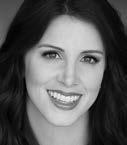
Soprano Chelsea Chaves has performed widely and is adored for her lyricism and winning stage presence. Since graduating with her master’s degree from the USC Thornton School of Music, Ms. Chaves has been featured in opera productions and concerts, including Astoria Music Festival, Musiktheater Bavaria, Opera Santa Barbara, OperaWorks, the Grammy-Award Winning Pacific Chorale, Pacific Symphony, Songfest, and many more. Her favorite roles include Hanna Glawari from Lehár’s Die Lustige Witwe and Pamina from Mozart’s Die Zauberflöte. Ms. Chaves is passionate about bringing classical music to the younger generations and is often featured with Pacific Symphony in their outreach pursuits and is the Education Manager for Long Beach Opera. In 2018, she was a recipient of the prestigious vocal award from the Profant Foundation in Santa Barbara and was a finalist for the Loren L. Zachary Competition in 2015. She has also sung the National Anthem at two Laker games. Chelsea received her Bachelor of Music degree from Chapman University. www.chelseachaves.com

I-CHIN “BETTY”
FEINBLATT is a classically trained professional soloist and choral artist with an active career spanning over two decades. Since 2000, she has performed extensively in both concert and operatic settings, earning praise for her expressive musicality and refined vocal technique. Her concert repertoire includes major works such as Bach’s Mass in B Minor, Beethoven’s Symphony No. 9, and Mendelssohn’s Elijah—for which Timothy Mangan of the Orange County Register described her performance as “delicate and aristocratic singing in her solos.” She has appeared as a soloist in Mozart’s Requiem and Handel’s
Messiah with Camerata Singers of Long Beach, and performed with The National Children’s Choir at The Broad Stage in Santa Monica. Ms. Feinblatt’s recent choral solo work includes Haydn’s Nelson Mass at the Salzburg Cathedral (Pacific Chorale, July 2023), Beethoven’s Symphony No. 9 with Pacific Symphony at the Renée and Henry Segerstrom Concert Hall (February 2023), and the role of Devotee in Philip Glass’s The Passion of Ramakrishna at Carnegie Hall (April 2018), in celebration of the composer’s 80th birthday.
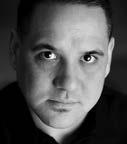
Praised by the Orange County Register as “resonant and warm” and by the classical music site Bachtrack as “a ringing stentorian tenor,” Hawai’i native Nicholas Preston is in demand as a soloist in Southern California and beyond, having performed throughout California and in France, Italy, and Spain. He has been a member of and frequent soloist with the Grammy Award-winning Pacific Chorale since 2002. Mr. Preston has appeared as a soloist with the Hollywood Bowl Orchestra, Pacific Symphony, and The Boston Pops Esplanade Orchestra. He has worked under the batons of John Alexander, Carl St.Clair, Keith Lockhart, John Williams, Nicholas McGegan, Kent Nagano, John Mauceri, Esa-Pekka Salonen, Grant Gershon and Gustavo Dudamel. His recent solo performances include the “Messenger” in Verdi’s Aida with Pacific Symphony, Monteverdi’s Vespers of 1610 with Pacific Chorale, Mozart’s Requiem with Long Beach Symphony, and Pacific Chorale’s 2022-23 season finale and European tour. Nicholas received his B.A. in Music from Loyola Marymount University, and currently resides in Orange County with his wife Dr. Kathleen Preston and their daughter Zelda.
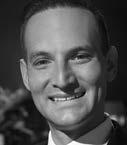
SEAN GABEL, bass, is a versatile performer and studio singer based in Los Angeles. His musical journey has taken him around the world, performing for both Hong Kong Disneyland and Shanghai Disney Resort, as well as locally at esteemed venues such as the Hollywood Bowl, Dolby Theatre, Walt Disney Concert Hall, Dorothy Chandler Pavilion, Microsoft Theater, and Hollywood Palladium. As a session singer, he has recorded in iconic studios including the Fox Scoring Stage, Warner Bros. Eastwood Scoring Stage, United Recording, and EastWest Studios. Sean is also a dedicated ensemble singer, performing with the Pacific Chorale, LA Chorale Lab, Voices of Terpsichor, and as an auxiliary member of the Los Angeles Master Chorale. His passion for theater has led him to perform in numerous productions, including Forever Plaid, The King and I, The Swan Princess, The Hunchback of Notre Dame, Joseph and the Amazing Technicolor Dreamcoat, The Music Man, and Beauty and the Beast. A classically trained bass-baritone, Sean holds Bachelor of Music and Master of Music degrees in Vocal Performance. His operatic credits include La Traviata (Un Commissionario), Ariodante (Re, King of Scotland), Die Zauberflöte (Sarastro), and La cambiale di matrimonio (Norton).
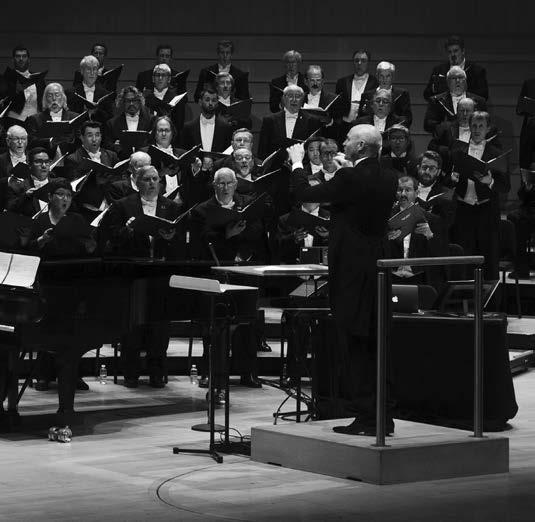
The GRAMMY® Award-winning PACIFIC CHORALE, an Orange County “treasure” with a “fresh viewpoint” that “can sing anything you put in front of it with polish, poise and tonal splendor” (Orange County Register), has “risen to national prominence” (Los Angeles Times) since its inception in 1968. Hailed for delivering “thrilling entertainment” (Voice of OC), the resident choir at Segerstrom Center for the Arts is noted for its artistic innovation and commitment to expanding the choral repertoire. It has given world, U.S., and West Coast premieres of more than 40 works, including numerous commissions, by such lauded composers as John Adams, Jake Heggie, James Hopkins, David Lang, Morten Lauridsen, Tarik O'Regan, Karen Thomas, Frank Ticheli, András Gábor Virágh, and Eric Whitacre. In addition to presenting its own concert series each season, Pacific Chorale, led by Artistic Director Robert Istad, enjoys a long-standing partnership with Pacific Symphony, with which the choir made its highly anticipated Carnegie Hall debut in 2018. The chorus also regularly appears
with the Los Angeles Philharmonic, with which it won the 2022 GRAMMY® Award for Best Choral Performance for its contribution to the live recording of “Mahler: Symphony No. 8, ‘Symphony of A Thousand,’” conducted by Gustavo Dudamel, featuring Los Angeles Philharmonic, Los Angeles Children’s Chorus, Los Angeles Master Chorale, National Children’s Chorus and Pacific Chorale. The choir has performed with such leading orchestras as the Boston Symphony, National Symphony, Los Angeles Chamber Orchestra, Philharmonia Baroque Orchestra, San Diego Symphony, and Musica Angelica, among others. In addition to receiving national accolades, Pacific Chorale has garnered tremendous international acclaim. In July 2023, the chorus completed its first international tour in seven years with appearances in Austria, Germany and the United Kingdom in collaboration with Bath Philharmonia, Free State Orchestra of Bavaria, and Bournemouth Symphony Chorus and Orchestra. Previous tours have taken the choir to 19 countries in Europe, South America, and Asia, including engagements with the London Symphony, Munich Symphony, L’Orchestre Lamoureux and L’Orchestre de St-Louis-en-l’Île of Paris, National Orchestra of Belgium, China National Symphony, Hong Kong Sinfonietta, Estonian National Symphony, and Orquesta Sinfonica Nacional of Argentina, among others. Deeply committed to making choral music accessible to everyone, the organization has a discography of 14 self-produced recordings and an extensive collection of free digital offerings. Among other artistic highlights, Pacific Chorale’s “The Wayfaring Project,” an original concert film conceived and conducted by Istad and produced during the pandemic, will be streamed through December 1, 2024 on pbssocal.org, kcet.org and the PBS app, reaching audiences around the globe. Pacific Chorale also places significant emphasis on choral music education, providing after-school vocal programs for elementary school students, a choral summer camp for high school students, and an annual community-wide singing event at Segerstrom Center for the Arts. PacificChorale.org
Robert Istad,
phillip n and mary a lyons artistic director chair
John Alexander, artistic director emeritus
Kibsaim Escárcega, assistant conductor ron rudderow legacy chair
Rebecca Hasquet
section leader
Lauren Adaska
Ammy Beltran
Cristen Bornancini
Alexandria Burdick
Katy Compton
Rosiana Falzon
Jenna Hansen
Saousan Jarjour
Kirsten Leon
Susan Hsia Lew
Susan M. Lindley
Anne McClintic
Shannon A. Miller 10
Kimberly Nason
Maria Cristina Navarro 25
Hannah Park
Nicole Peppel
Laura Pluth
Libby Quam
Sarah Schaffner-Pepe
Anne Williams
Denean R. Dyson
acting section leader
Emily Border
Mary Clark 10
Kathryn Cobb-Woll 30
Jacline Evered 20
Marilyn Forsstrom
Kathryn D. Gibson 50
Erin Girard
Kathleen Thomsen Gremillion
Sandy Grim
Allison Hieger
Carla Neeld
Pat Newton
Kathleen Preston
Bonnie Pridonoff 20
Elizabeth Provencio
Laurel Sanders 10
Stephanie Shepson
Rachel Steinke
Grace Stewart
Mya Ujifusa
Sammy Salvador, acting section leader, ron gray legacy chair
Jephte Acosta
Mike Andrews
Nate Brown
Chris Buttars
Abraham Cervantes
Craig Davis
Michael Elson
David Evered 20
Jason Francisco
Alan Garcia
Chris Gomez
Steven M. Hoffman
Craig S. Kistler
Jeremy Lee
Christopher Lindley
Zachary Lindquist
Greg Long
Benjamin Lopez
David Melendez
Jared Pugh
Ryan Thomas Antal, section leader, ron gray legacy chair
Michael Fagerstedt
Karl Forsstrom, singers memorial chair
Larry Gates
Randall Gremillion
Peter Hahn
Brian Hamer
Tom Henley
Matthew Kellaway
Jonathan Krauss
Dylan Leisure
Elliot Z. Levine
Tom Mena 10
Emmanuel Miranda
Kenneth Moore
Ryan Morris
Jason Pano
Carl Pike
Raphael Poon
Numbers after a name indicate anniversary years of active membership as a Pacific Chorale singer.
Bonnie Yoon
Ryan Ratcliff
Sean TenBrook
David Tkach
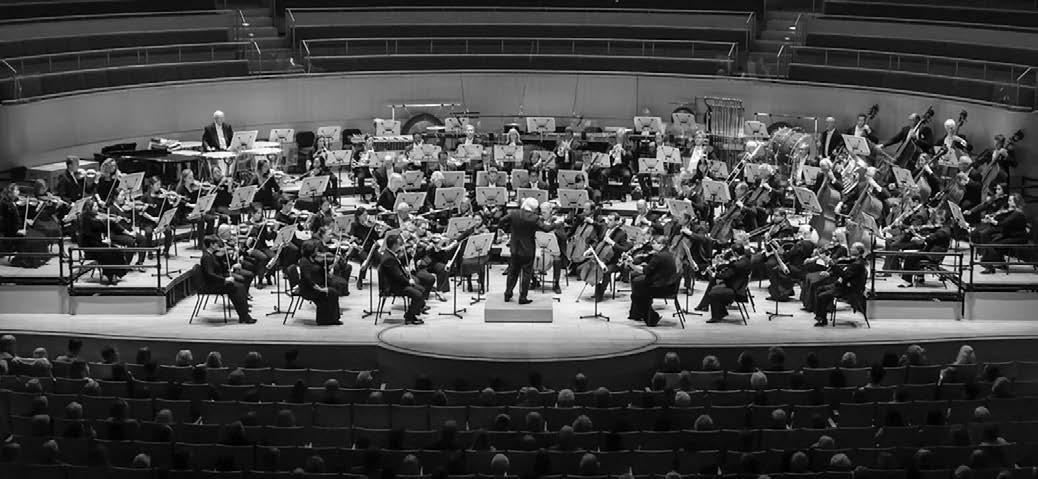
Led by Music Director Carl St.Clair for the last 35 years, has been the resident orchestra of the Renée and Henry Segerstrom Concert Hall since 2006. Currently celebrating its 46th anniversary season, the Symphony is the largest orchestra formed in the U.S. in the last 50 years and is recognized as an outstanding ensemble making strides on both the national and international scene, as well as in its own community of Orange County.
In April 2018, Pacific Symphony made its debut at Carnegie Hall as one of two orchestras invited to perform during a yearlong celebration of composer Philip Glass’ 80th birthday, and the following month the orchestra toured China. The orchestra made its national PBS debut in June 2018 on Great Performances with Peter Boyer’s Ellis Island: The Dream of America, conducted by St.Clair. Presenting more than 100 concerts and events a year and a rich array of education and community engagement programs, the Symphony reaches more than 300,000 residents—from school children to senior citizens.
In both 2005 and 2010, the Symphony received the prestigious ASCAP Award for Adventurous Programming. Also in 2010, a study by the League of American Orchestras, Fearless Journeys, included the Symphony as one of the country’s five most innovative orchestras. The Symphony’s awardwinning education and community engagement programs benefit from the vision of St.Clair and are designed to integrate the orchestra and its music into the community in ways that stimulate all ages.
The Symphony’s Class Act program has been honored as one of nine exemplary orchestra education programs by the National Endowment for the Arts and the League of American Orchestras. The list of instrumental training initiatives includes Pacific Symphony Youth Orchestra, Pacific Symphony Youth Wind Ensemble, Pacific Symphony Santiago Strings, and Pacific Symphony Youth Concert Band.
The Symphony also spreads the joy of music through arts-X-press, Class Act, Heartstrings, Lantern Festival Orchestra, Symphony on the Go!, and Symphony in the Cities.
Carl St.Clair, music director
william j gillespie music director chair
Dennis Kim
concertmaster
eleanor and michael gordon chair
Yoomin Seo
associate concertmaster
judy and wes whitmore chair
Jeanne Skrocki
assistant concertmaster
arlene and seymour grubman chair
Michael Siess
Christine Frank
Ayako Sugaya
Ann Shiau Tenney
Joanna Lee
Robert Schumitzky
Agnes Gottschewski
Dana Freeman
Julie Ahn
Paul Manaster
Madalyn Parnas Möller *
elizabeth and john stahr chair
Jennise Hwang**
Yen Ping Lai
Yu-Tong Sharp
Ako Kojian+
Linda Owen
Sooah Kim
MarlaJoy Weisshaar
Alice Miller-Wrate
Shelly Shi
VIOLA
Meredith Crawford*
Victor de Almeida**
Carolyn Riley
John Acevedo
Hanbyul Jang
Julia Staudhammer
Joseph Wen-Xiang Zhang
Cheryl Gates
Phillip Triggs
Alexander Shelley, artistic and music director
designate, phillip n and mary a lyons artistic and music director designate chair
Warren Hagerty*
catherine and james emmi chair
Benjamin Lash**
Robert Vos
László Mezö
Ian McKinnell
M. Andrew Honea
Rudolph Stein
Emma Lee
BASS
Richard Cassarino *
Douglas Basye**
Christian Kollgaard
David Parmeter+
Andrew Chilcote
David Black
Andrew Bumatay
Constance Deeter
Benjamin Smolen*
valerie and hans imhof chair
Sharon O’Connor
Cynthia Ellis
PICCOLO
Cynthia Ellis
OBOE
Jessica Pearlman
suzanne r. chonette chair
Ted Sugata
ENGLISH HORN
Lelie Resnick
CLARINET
Robert Walker*
the hanson family foundation chair
David Chang
charlie and ling zhang chair
Jacob Sustaita, assistant conductor
mary e moore family
assistant conductor chair
BASS CLARINET
Joshua Ranz
BASSOON
Rose Corrigan*
ruth ann and john evans chair
Elliott Moreau
Andrew Klein
Allen Savedoff
CONTRABASSOON
Allen Savedoff
FRENCH HORN
Keith Popejoy*
Adedeji Ogunfolu
Kaylet Torrez**
Henry Bond
TRUMPET
Barry Perkins*
susie and steve perry chair
Tony Ellis
TROMBONE
Michael Hoffman*
David Stetson
TUBA
James Self*
TIMPANI
Vacant
PERCUSSION
Robert A. Slack*
HARP
Michelle Temple the sungaila family chair
* Principal
** Assistant Principal + On Leave
Renée and Henry Segerstrom Concert Hall, Costa Mesa
FESTIVAL CHOIR PARTICIPANTS
AUGUST 15–17, 2025
SPONSOR:
CONCERT
SPONSORS:

FREE COMMUNITY PERFORMANCE
AUGUST 17, 2025 AT 5PM


Robert Istad CONDUCTOR
Jung-A Lee ORGAN
Pacific Chorale’s Festival Chorus
Selections from Bernstein’s Mass Adolphus Hailstork IWillLiftUpMineEyes
WeShallWalkThroughtheValley (arr. Undine Smith Moore)
This festival joins hundreds of community members with the voices of the GRAMMY ® Award-winning Pacific Chorale! Experience one of the country’s foremost music venues at no cost. Festival choir participation registration is now opent, and free concert tickets are available starting July 1, 2025.

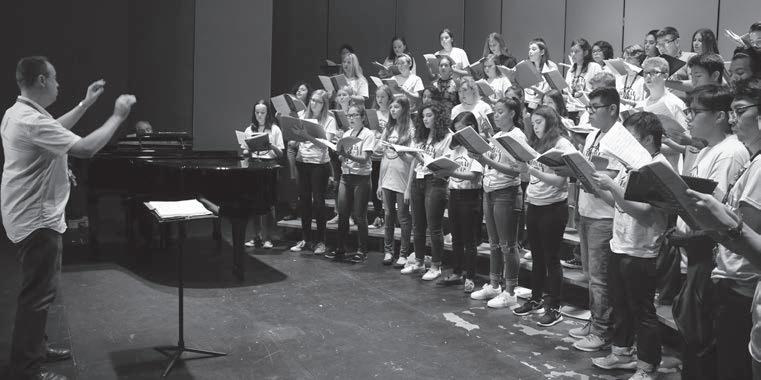

Pacific Chorale Choral Camp
AT CAL STATE FULLERTON JUNE 23-27, 2025
For High School Students Grades 8-12

PLATINUM

PACKAGES OF 3 OR MORE CONCERTS AVAILABLE
AT THE RENÉE AND HENRY
SEGERSTROM CONCERT HALL: Poulenc & Hagen
OCTOBER 25, 2025
Showcasing Poulenc’s exuberant Gloria alongside the world premiere of Jocelyn Hagen’s What the Soul Already Knows.
Tis the Season!
DECEMBER 21 & 22, 2025
Pacific Chorale’s holiday extravaganza lights up the stage with seasonal classics, whimsical surprises, and Santa himself!
Conducted by Artistic Director
Emeritus John Alexander
MAY 23, 2026
John Alexander returns to conduct Pacific Chorale and Pacific Symphony in works by Brahms, Boulanger, Bruckner, Heggie, Mozart, Ticheli and Vaughan Williams.



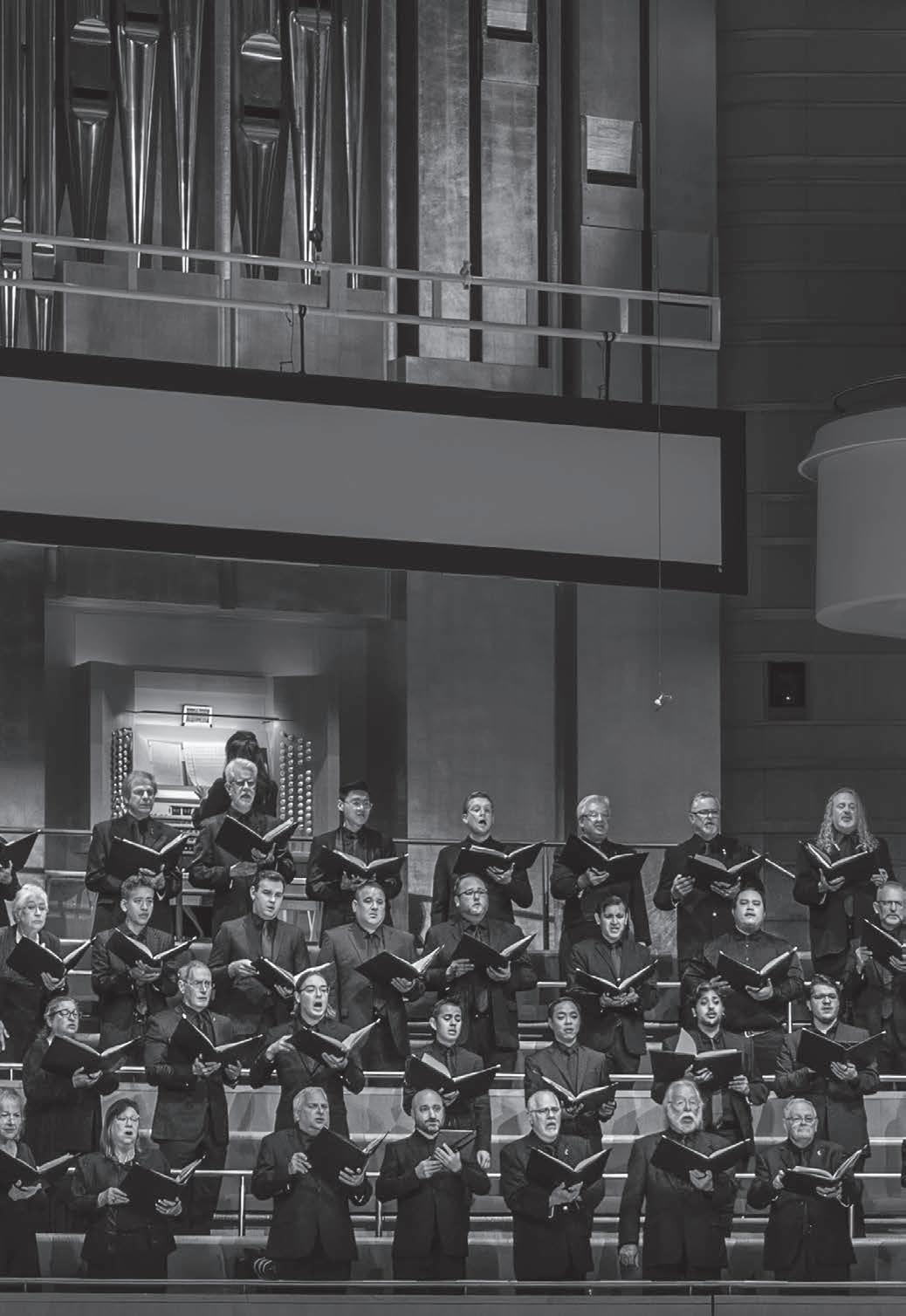
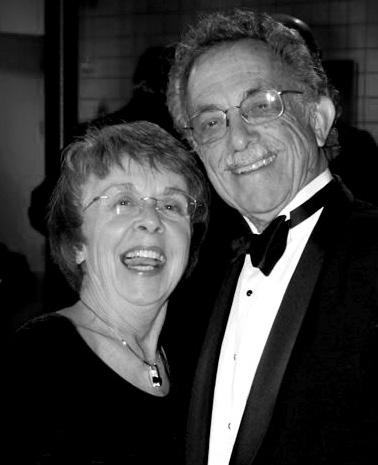
By Natalie Oswald, ASSOCIATE DIRECTOR OF DEVELOPMENT
For Jim and Karen McBride, choral music has always been a passion. Jim first sat in on Pacific Chorale rehearsals in the early ’70s and soon found himself on the roster in the bass section. By the late ’70s Karen had also joined the Chorale. Together they built a lifetime of memories — including touring with their daughter Jennifer (also a Chorale member) to Germany, Austria, Hungary, China, and Eastern Europe where they cemented several lifetime friendships with people they met on tour. Now, Jim and Karen are dedicated to ensuring the future of Pacific Chorale for the next generation by supporting its Endowment Fund.
Natalie Oswald: How does supporting the Endowment align with your values?
Jim McBride: We support the groups in Orange County that have given us the most, and for us that has been Pacific Chorale. Supporting the Endowment ensures longevity and allows us former members of the choir to give back in a meaningful way. Rather than make one lump-sum contribution, Karen and I have chosen to give to the Endowment Fund in increments over a period of five years.
Natalie: Do you still contribute annually to the Chorale, in addition to your Endowment gift?
Jim: Absolutely. We’ve given annually for years and began supporting the Endowment once we were financially able. If you give a dollar to the annual fund, your generosity lasts a year. If you give it to the Endowment, it lasts forever.
Natalie: What would you say to those considering a gift to the Endowment?
Jim: Giving to the Endowment is more than a donation — it’s an investment in the future of Pacific Chorale. If the music you hear tonight reaches into your soul, making an Endowment gift in addition to your annual gift is a powerful and lasting commitment to the continued growth and preservation of the choral art form in Orange County.
JOIN US IN SECURING PACIFIC CHORALE’S FUTURE
To learn more about making an Endowment gift, contact Natalie Oswald at (714) 662-2345 x227 or noswald@pacificchorale.org.
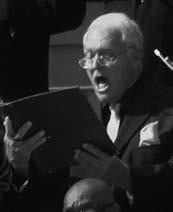
A LASTING LEGACY: Pacific Chorale is honored to announce the RON RUDDEROW LEGACY FUND
A generous estate gift from the late Ron Rudderow, a bass singer in the Chorale for 20 years, will strengthen our artistic and educational programs for years to come.
Scan to read the full press release

Pacific Chorale gratefully acknowledges the following donors for their generous contributions since February 2024. These contributions enable Pacific Chorale to continue serving the community with performances of the highest artistic quality, and providing exceptional educational programs designed to continue the tradition of choral artistry in Orange County.
We gratefully acknowledge the following donors, whose total gifts are in excess of $1 million, for their exceptional generosity and commitment to the success of the nationally recognized Pacific Chorale.
William
J. Gillespie* Phillip N. and Mary A. Lyons Lenora Meister
$100,000 AND ABOVE
Phillip N. and Mary A. Lyons
Lenora Meister and Salt-Away Products, Inc.
Ron Rudderow*
$25,000 TO $99,999
Karl and Marilyn Forsstrom
Hans and Valerie Imhof
John and Lori Loftus
Trish O’Donnell
David and Darrellyn Melilli
Charles and Ling Zhang
$10,000 TO $24,999
Janice Johnson
Jan Landstrom
James and Karen McBride
Haydee Mollura
Kenneth and Carla Neeld
Dennis and Marcía O’Hern
Thomas and Bonnie Pridonoff
Loraine Reed
$5,000 TO $9,999
Mike Andrews
Brian D. Bates, CPA
Mary Ester Blakley
John and Marcia Cashion
Kathryn Gibson
Mark and Donna Hoover
Mei Yen Huang Chang
Chris and Susan Lindley
Kit Newman and Jerry Moulton
Pat and Craig Newton
Deborah Pasarow
$2,500 TO $4,999
Tom and Anne Henley
Norm and Sandy Johnson
Richard McNeil
Richard Messenger
Dr. Irvin and Mr. Michael Navarrete-Carroll
Stéphane Quinn
Kirsten and Craig Springer
Fram and Julie Virjee
Jun Yao and Barbara Wang
$1,000 TO $2,499
Brien Amspoker and Ellen Breitman
Chris and Susan Anderson
David L. Bates
Kenneth and Margaret Blair
Dennis and Stephanie Blanchard
Michael and Valerie Cantwell
Terry and Phyllis Clark
Hugh Davies
Michael and Cheryl Del Campo
Rhett M. Del Campo and Elena Madrigal Hall
Peter Foley
Margaret Gates
Rhona Gewelber
Song Guo
Maria Hall-Brown
Diana Hensley
Lynne and Mike Istad
Drew and Katherine Jacobs
Mike and Susan Jacobs
Donna Janes
Eileen Jeanette
Barbara Kingsbury
Jonathan Krauss
John Lundsten
Nancy Lyons
Dr. Goran S. Matijasevic
John and Elaine McClintic
Dr. John Mooney and Dr. Angela Tripoli
Mark J. Nielsen
Dr. Andrei Novac and Dr. Bonita Jaros
Gus and Leslie Ordonez
Joan S. Petty
Judith Posnikoff
George H. Reiss
Casey and Naomi Reitz
P. A. Sefton
Carol Smith
Carl and Susan St.Clair
Diane Stovall
Dr. Deborah Then and Prof. George Foster
Peter and Martha Wetzel
Amanda and Andrew Whiting
Karen Zfaty
$100 TO $999
Jay Aber
Dennis Aigner and Camille Bertolet
Mark Aldrich and Doug Deimeke
Tom Anderson
Joyce A. Antal
Deborah and Jim Babcock
Steve and Jennifer Baker
Raymond and Lois Helm Beeman
Carl and Regina Blankenhorn
Andrew and Michelle Brouwer
John and Kay Brown
Julie Bussell
Art and Donna Carter
Joe and Barbara Chamberlain
Steven and Sandra Chiang
Joseph and Julie Chien
Denise B. Chilcote
Mikki Cichocki
Ronald Clark
C. Leonard Coduti
Paige Cotcamp
Lee Daigle
Matt and Chris Darling
Charles and Darlette Dexter
John Paul Drayer
Lucy Dunn
Denean R. Dyson
Robert and Elaine Elliott
Judi Elterman
Howard and Janet Emery
Dr. Robert and Christine Emmons
David and Jacline Evered
Harvey and Sharon Fair
Rosemary P. Fennell
Drs. Herb and Cheryl Fischer
DeAnn Forbes
John Forsyte and Michele
Moe-Forsyte
Carla Fuchs
Alan Garcia
Larry Gates
Carol Gentry
Nancy Gerhard
James and Sharon Givens
Randall Goldberg
William and Alison Gregg
Edward Gutierrez
Peter Hahn
William D. and Bonnie Brittain Hall
Michael and Janet Hards
John R. Hargreaves Sr.
Carol and William Hatton
Catherine Henley-Erickson
Ed and Mary Louise Hlavac
Daniel and Elizabeth Hoffmann
Wendy Isbell
Robert Istad and David Navarro
Dr. Mark Chapin Johnson
Kellee King
Craig and Deborah Kistler
James and Lidia Klingler
Nels and Andrea Klyver
Drs. John and Patricia Lamb
Dr. Jung-A Lee
Canyon and Susan Lew
Yi Lin
Patricia Liu
Jim and Claudia Looney
Suzi Lyons
Amira Mansour
Dale and Sally Marquis
Deb Matsumoto
James and Becky McGaugh
Dr. John and Deborah Middlebrooks
Herbert and Joyce Miller
Richard Moore
Ann and Steve Morris
Douglas and Kimberly Nason
Alexander Nelson
Wayne Norman
Charles Oh and Hye Lee
Dorothy A. Peralta
Sandy Possehl
Dorcas Preston
Dr. Kathleen and Nicholas Preston
Donald Rabe
Frank and Dana Ramos
Karyn Rashoff
Ryan Ratcliff
Jerome and Mary Reinhart
Thomas Ringland
Kathryn Ryan
Kumiko Sakai
Matthew Samia
Dr. and Mrs. James G. Schulze
William Shelly
Howard Shen
Stan Sholik and Linda Wells Sholik
Wendy Sobeski
Grayson Stamps
Dr. Robert M. Stroup
Peter and Mary Tennyson
Matthew and Sarah Thompson
Frank and Shari Ticheli
Joseph and Kathryn Tillotson
Gary and Marjie Toops
Daniel R. Tremblay and Linda L. Kirchner
Tom Unvert
Beth Varney
Ernest and Diane Velarde
Matthew and Terri Wedell
Celeste Wells
Dr. Stanley White
Gregory Woll and Kathryn
Cobb-Woll
Susie Xie
Mr. and Mrs. Richard Zevnik
Greg Zwetow
$25,000 AND ABOVE
The Capital Group
Pacific Life Foundation
Salt-Away Products, Inc
Segerstrom Center for the Arts
$10,000 TO $24,999
Irvine Barclay Theatre
National Endowment for the Arts
$5,000 TO $9,999
Farmers & Merchants Bank
Lon V. Smith Foundation
Newport Beach
Cultural Ar ts Commission
The Renee Jeffrey O’Hern Foundation
$1,000 TO $4,999
American Feel Young Chorus
Cal State Fullerton College of the Ar ts
City of Costa Mesa
Colburn Foundation
$100 TO $999
Marathon Petroleum Company
Robert & Doreen Marshall Fund for Dramatic Ar ts and Classical Music
Contributions to Pacific Chorale’s Endowment Fund are invested in perpetuity. The interest generated from the Endowment helps to provide the Chorale with long-term financial stability. The Chorale is delighted to acknowledge its generous Endowment Fund donors. We are deeply grateful to them for their belief and investment in the organization’s future.
COMMITMENTS OF $1,000,000+
William J. Gillespie*
Phillip N. and Mary A. Lyons, Artistic Director Chair
COMMITMENTS OF $100,000 & UP
Ron Gray*
James and Karen McBride
Ron Rudderow*
Vina and Barry Williams*
COMMITMENTS OF $50,000 & UP
Mike Andrews
Janice Johnson in memory of Roger W. Johnson
John* and Jan Landstrom
David and Darrellyn Melilli
John* and Elizabeth Stahr
COMMITMENTS OF $25,000 & UP
Marilyn and Tom Nielsen
George H. I. Reiss
COMMITMENTS OF $10,000 & UP
Wells Fargo Bank
Greg and MarJane* Christofferson
Dr. Edward and Mrs. Helen Shanbrom* in memory of David Lee Shanbrom
COMMITMENTS OF $5,000 & UP
Anne B. Nutt
COMMITMENTS OF $1,000 & UP
Anonymous
Michael Carroll
Dr. James* and Yuko Kawai Dunning
Margaret Gates
Michael and Eleanor* Gordon
Dennis V. Menke
Richard Messenger
Richard McNeil
Jeanette Moon
Donna Morse
Carl and Susan St.Clair in celebration of Cole Carsan St.Clair
The Legacy Society recognizes and honors those who have included Pacific Chorale as part of their estate planning. Pacific Chorale gratefully acknowledges the following benefactors for their visionary support, ensuring the preservation of quality choral music and education.
Anonymous
Mark E. Aldrich
John Alexander
Robert D. Breton
Percy Brotherton*
Dr. and Mrs. Thomas C. Campbell
Phyllis and Terry Clark
Warren Coy
Denean R. Dyson
Jacline R. Evered
Roger and Geri Gibb*
Kathryn Gibson
Gary Good and Jacqueline Charnley
Ron Gray*
George W. Haas*
George Hatchard*
William and Carol Hatton
Tom and Anne Henley
Mark and Donna Hoover
Dennis L. Houser
Michael and Susan Jacobs
Bonita Jaros and Andrei Novac
Janice Johnson
Barbara Kingsbury
Craig and Deborah Kistler
John* and Jan Landstrom
Randi W. Larsen
Phillip N. and Mary A. Lyons
Karen M. and James S. McBride
Richard Messenger
Jeanette Moon
Thomas C. Moore Trust*
Ann and Steve Morris
Betsy* and Jerry Moulton
Carla and Kenneth Neeld
Patricia Newton
Trish O’Donnell
Elizabeth Pearson
Sandy and Val Policky
Thomas A. and Bonnie J. Pridonoff
Loraine Reed
George H. I. Reiss
Ron Rudderow*
Peggy Schmid
Jane Shepherd
Kirsten and Craig Springer
Susan Van Wig
Martha and Peter Wetzel
Vina Williams* * deceased
If you have already remembered Pacific Chorale in your estate plan, or are interested in doing so, please contact us at (714) 662-2345. All inquiries will be strictly confidential.
IN-KIND GIFTS
Pacific Chorale wishes to thank the following business and individuals for their generous in-kind donations of goods and services over the last year.
Catalina Flyer
Coast Pharmacy
Shari Cole
DAOU Winery
Hi-Time Wine Cellars
Hope Family Wines
Barbara Kingsbury
Jan Landstrom
Randi Larsen
Carla and Kenneth Neeld
Pat Newton
Pacific Symphony
Segerstrom Center for the Arts
Julie Virjee
Very special care has been given to the preparation of donor listings. This list is current as of April 4, 2025. We deeply regret any errors and omissions, and appreciate your phone call to Pacific Chorale at (714) 662-2345 or email to ContactUs@PacificChorale.org with needed corrections.
Thank you for your support of Pacific Chorale.
LEARN HOW YOU CAN HELP

Craig Springer board chair
Executive Committee
Rhett M. Del Campo president & ceo
Amanda Whiting vice chair
Susan Lindley secretary
Brian D. Bates, CPA treasurer
Mary A. Lyons
Thomas A. Pridonoff immediate past chair
Jennifer M. Baker
David Bunker
Maria Hall-Brown
Christopher Lindley
Rick McNeil
Samuel Nordrum
Marcía O’Hern
Stephane Quinn
Ryan Ratcliff
artists’ council representative
Michael Vantrease
Julie Virjee
Li Hong Wang
Distinguished Emeritus Directors
Mary A. Lyons, chair emeritus
Michael J. Carroll
Stanley Cochran
Bonnie Brittain Hall
Janice M. Johnson
Karen Johnson
Jan Landstrom
Marcus Lussier
Thomas H. Nielsen
Anne B. Nutt
George Reiss
Elizabeth D. Stahr
Rhett M. Del Campo president & ceo
Robert Istad artistic director & conductor
John Alexander artistic director emeritus
Administration
Alex Nelson vice president, artistic production & operations
Ryan McSweeney director of patron services
Natalie Hunter director of marketing
Natalie Oswald associate director of development
Rose Taylor education program manager
Amy Henderson finance & administration manager
Molly Buzick Pontin, DMA grants manager
Scarlet Baker communications & office liaison
Artistic Staff
Kibsaim Escárcega assistant conductor
David Clemensen, DMA collaborative pianist
Rebecca Hasquet soprano section leader
Jane Hyun-Jung Shim alto section leader
Nicholas Preston tenor section leader
Ryan Thomas Antal bass section leader
Ryan Koo
teaching artist
Grace Park
teaching artist
Robert Brader
teaching artist
Tomas Kaco academy accompanist
Volunteer Administration
Barbara Kingsbury
historian
Ryan Ratcliff artists’ council president
Consultants & Support





www.PacificChorale.org
MISSION STATEMENT
We inspire our community through artistry and innovation in choral music performances and education programs.
PACIFIC CHORALE
3303 Harbor Blvd., Suite E5 Costa Mesa, CA 92626 (714) 662-2345
ContactUs@PacificChorale.org
Pacific Chorale is a member of Arts Orange County and Chorus America.

